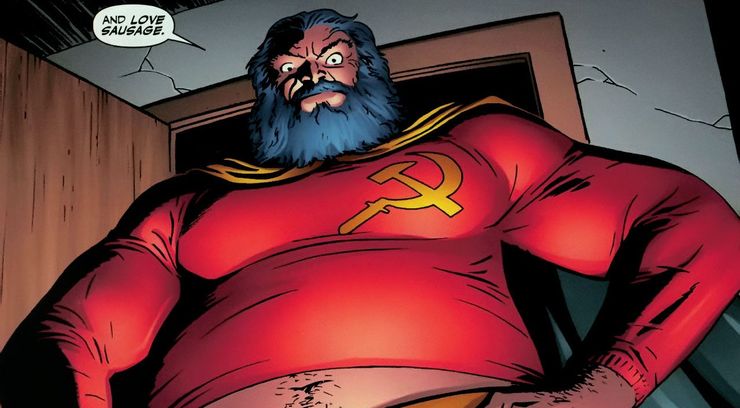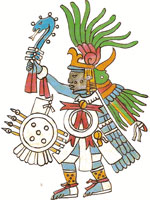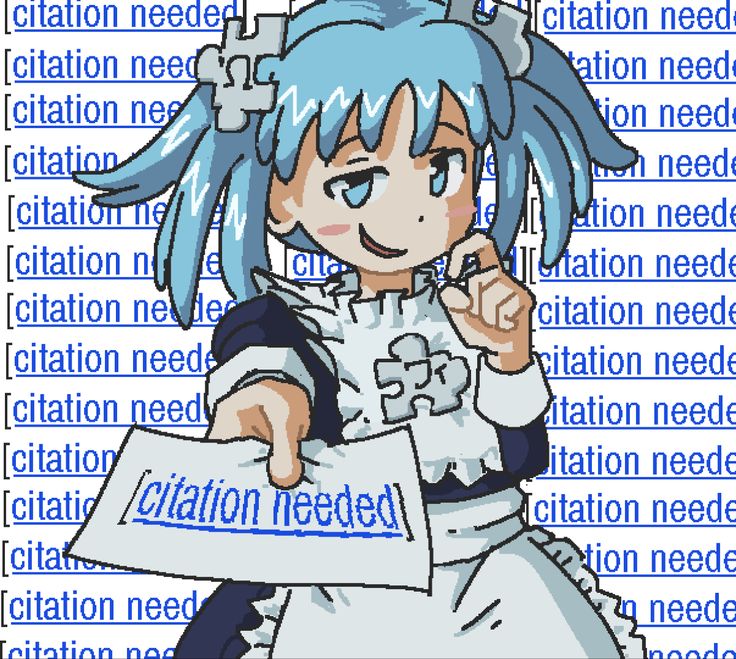I’m finishing the last episode of S5 now, and I’ll be fully caught up on this series. Between Afghanistan and Cambodia, China’s willingness to play ball with the US and its agenda is frustrating to learn.
It leaves me wanting to learn more about the Sino/Soviet split. The way this division manifested really aligned China with some dark forces, it would seem.
I also imagine the process of “normalization” with the US plays a huge role in the way this history unfolds as well.
It makes me wonder what they knew about The Khmer Rouge’s operations. I was left with the impression, based on how the history was laid out, that China was aware of just how aggressive and bloody the Khmer Rouge’s policies were.
Something about that stretch of time between 79 and 89 seems to have resulted in a bunch of weird geopolitical stuff.
Need to finish this episode, I guess.
China’s foreign policy was completely unhinged during this period.
The transition from leadership by a war hero guiding a fledgling country through difficult circumstances into a more “relaxed” leadership governing over a more stable and peaceful country is a conundrum that AES states struggle with. Mao attempted to prevent that transition by any means necessary, and splitting with the Soviets, training the Khmer Rouge, and normalizing with the US were driven by that fear, fear of a Chinese Khrushchev.
From a big picture, outside view, and with the benefit of hindsight, it’s easier to say the Khrushchev and Deng were the result of changing material conditions, and no matter how hard one tries to stop it, changing conditions lead to changing leadership.
However, if you’re the wartime leader it’s harder to see that, not only for self-interested reasons, but also just in terms of personal experience and personality. The person most capable of leading the revolution to victory is generally not a person who is easy to convince to stop seeing threats everywhere. I agree with what seems to be the prominent strain of thought on Hexbear that people like Stalin and Mao were necessary but also that modern China is socialist. Unfortunately, I don’t really know what the solution is to get from point A to point B other than waiting for the leadership to die.
Imo Mao really put the cart before the horse with his concept of “permanent revolution,” as if the end goal of leftism is to create ideologically pure revolutionaries. The goal is to create a more peaceful and equitable world where we don’t need revolutionaries.
In any case this is a definite black spot on the PRC and it’s worth noting that it’s history is pretty messy in general. Don’t think you can or should defend everything.
and normalizing with the US were driven by that fear, fear of a Chinese Khrushchev
This makes no sense. Siding with the world’s genocidal hegemon against the anti-colonial movements is much, much worse than a ‘Chinese Khrushchev’.
Yes, but the US didn’t represent the ideological strain they were trying to root out. Conciliation with the USSR would make one look like they agreed with the USSR’s path and wanted to do the same in China.
I’m not saying it made sense or was in any way excusable, but that paranoia was a factor in it.
but the US didn’t represent the ideological strain they were trying to root out
If you aren’t trying to root out that ideological strain - of supporting colonial subjugation of the world by the European powers, - you should be the one rooted out.
Conciliation with the USSR would make one look like they agreed with the USSR’s path and wanted to do the same in China
By this logic, they found it more acceptable appearing to agree with genocides and colonialism of NATO.
These excuses do not work.
The sino soviet split was basically the biggest disaster of the 20th century
Yeah that’s what is seems
It doesn’t get any better. Cynically the Gambit worked. The demon killed all other regimes and only china was left unscathed.
I’m right there with you though in wanting to learn more.
The soviets were 100% in the right in the sino soviet split. Whatever issues the Chinese govrrnment had with the soviets (The arrogance of the Soviet government in dealing with other communist countries including the refusal to consider others equal partners in building, and disagreement about the implementation of communism) were rendered totally moot by the Chinese government deciding to buddy up to the Americans who were openly anticommunist and in this capacity supporting basically every major anticommunist movement in the second and third world. I simply don’t accept that your problem with the soviets is their revisionism hen you’re willing to ship guns to Pol Pot and help the Great Satan kill communists in Afghanistan
I agree with you, though I’d say that the chinese were right in their issues for the split, which you outlined, but completely wrong in their conduct after it. Their original points aren’t rendered moot because of what happened afterwards but they don’t justify what they did either, which I think is what you’re saying.
I do actually think that the PRC can’t legitimately claim to be opposed to revisionism and support the Khmer Rouge and the United States against other communists. I just don’t accept that their opposition to revisionism was legitimate in that context. Whatever issues they had with revisionism were clearly secondary to other concerns and one of those concerns was clearly just spiting the Soviets. I, in a way, am claiming that at least one of the stated motivations given by representatives of the PRC was a lie.
But you’re right that I don’t think they were lying about their problem with being viewed essentially as secondary to the “Real” soviet revolution, and I do think this was a legitimate complaint to have. But as you say, I find their actions in response to this to be deeply unjustified.
I think the chauvinism is ultimately much, much more important and frankly deserves more blame for the collapse of the Soviet Bloc than it is given in discussions. The USSR was the lynch pin of the socialist world. Every other country leaned on it intensely, and they were all burned horribly by it when the CPSU internally capitulated (which happened before the USSR actually fell). What are you supposed to do in the face of the USSR just abandoning their mission if you’re an aligned socialist government that depends on them? Both economically and politically, the USSR’s allies were leaned precariously against what they thought was a stable base, a superpower that held itself up as the headquarters of the revolution and an alternative to the west.
The post-WW2 European socialist states followed Gorbachev’s lead in capitulating. Parties in post-colonial states with actual revolutions were faced with economic devastation, ideological abandonment by the superpower that was their beacon, and inevitably had to liberalize and integrate with the global system since there was no longer a Soviet-led alternative.
I would also say that the post-Stalin Soviet union’s unequal attitude towards its allies was in part a result of the party losing ideological focus and getting too deep into the realpolitik of the cold war, but engaging in similar realpolitik after splitting didn’t do Mao any favors. I would actually put forward a sort of “two revisionisms” theory, that post-split China, Albania, and other “anti-revisionists” are fundamentally a second type of revisionist, who has retooled the ideology to center defeating revisionism.
The sino soviet split is one of the elephants in the room of modern leftist discourse. But hey, if China manages to become the world’s leader and spreads world wide communism, that era will be forgiven I imagine
Socialist states absolutely can and have done cringe. Western socialists (“socialists”) need to understand that even when they fuck up that’s still “our guy” in charge [the party]. Unfortunately, the power received in victory includes the power to fuck things up. Look it in the eye, understand it, don’t repeat the same mistakes. Any westerner who starts using the word “socialist” to describe themselves must be held to this.
With people on the more liberal end, be more smug than mean:
“Oh you’re ‘socialist’/‘anti-capitalist’ too? Yeah of course the Russian, Chinese, Cuban, and Vietnamese (etc) revolutions are fascinating cause they went out and actually defeated capitalism. You don’t like that some of them were revisionist? I don’t agree with every decision that was made after the revolution either, that would be ridiculous with hindsight and all that. It’s definitely worth discussing what went on and understanding what the decision making process was in the circumstances of those countries.If we are successful at overthrowing capitalism like you just said, we are probably going to be faced with some similar decisions. It’s also important that we contrast with the more palatable movements like in Chile, Burkina Faso, and Central America that ended in failure.”
the power received in victory includes the power to fuck things up
This is a great way to put it. A lot of the condemnation of socialist governments is specifically condemnation of the big programs they put into place to try and reverse the ongoing horrors of capitalism - success or failure, the socialist government fully owns the results of those programs, meanwhile since most of the horrors of capitalism are done in a kind of decentralized way, capitalist governments get to play the blame shifting game where the bad things that happen under their own rule are the result of forces beyond anyone’s control and the good things are totally the result of capitalism and would be impossible under any other system.
Some resentment should be reserved for sabotaging the Soviet Union.
I’ll defend them against the US and the West, but I find it hard to be a die hard supporter of China the way some people are, considering its history in the sino-soviet split and, well, their lack of vocal ideological support for communism on the world stage
their lack of vocal ideological support for communism on the world stage
This is the biggest caveat to China support for me, too. Like I’ve read and understand the arguments that if China were to support global socialist movements the way the USSR did, they would lose a lot of the leverage and power that they’ve accrued for themselves in the past couple of decades - but that doesn’t make it any easier to swallow them supporting right wing governments against socialist guerillas. If they’re not going to send PLA volunteers to aid the rebels then at the very least they should use their neutrality to play some wishy washy word games about how they can’t get involved!
Plus, I think there needs to be a reckoning with the fact that in every way that matters China is the largest power in the world right now. America’s hegemonic status has been broken for a long time and the rest of the world is just figuring it out, China might see it in its interest to keep the dollar as the world reserve currency or whatever but they absolutely have room to be making moves that advance the socialist cause.
but that doesn’t make it any easier to swallow them supporting right wing governments against socialist guerillas. If they’re not going to send PLA volunteers to aid the rebels then at the very least they should use their neutrality to play some wishy washy word games about how they can’t get involved!
Exactly. Palestinians are literally on the brink of extinction, and China’s support for Iran is by million layers of proxy. Pakistan is their closest ally in the region. There are simply so many contradictions with China I can’t personally hand waive away through n degrees of abstraction.
Why should China be advancing the socialist cause directly in whatever nation? This is precisely the biggest blunder the USSR did and a historical lesson we should have learned already, why keep insisting on this. China already does their part by leading with example and proving that socialism is a superior system, the responsibility for liberating one own nation falls in the shoulders of the respective nation citizens. If a country wants a revolution they can have it, if not they won’t, the Chinese wanted a revolution and they had it, Russians wanted a revolution and they had it, etc…
Why should China be advancing the socialist cause directly in whatever nation?
Stopping colonialism and genocides is good, actually. Also, national chauvinism and claiming that all that matters is how well people live in China, as opposed to caring about the conditions of the working class in the world in general, is cringe, to say the least.
This is precisely the biggest blunder the USSR did
What basis does this claim have?
China already does their part
The PRC has been successful in improving the lives of people in China, but it does not seem to be doing much to help the rest of the world against capitalism and colonialism.
by leading with example and proving that socialism is a superior system
This is rather silly. Firstly, an ‘example’ is not something that gives peripheral states arms and productive capacities to fight off NATO, nor does it give those to the working class there to fight off the bourgeoisie in general. Secondly, what useful ‘example’ does the PRC provide? A shift to a privatised economy is useful in the short term for attracting foreign investments, which comes at the cost of workers’ rights, such as guaranteed housing. Currently, no country that is opposed to NATO seems to be able to compete with the PRC in terms of foreign investment attraction and exports, as far as I’m aware. For that to happen, the PRC would have to stop taking its 'W’s. Thirdly, as of right now, the PRC’s economy is significantly privatised, it has a profit motive. I’m not sure what your definition of a ‘socialist system’ is, but the definitions that I have encountered so far require the abolition of the profit motive. That is in addition to the fact that, due to this profit motive, the PRC cannot currently manage to provide people with guaranteed housing the way planned economies are incentivised to do.
the responsibility for liberating one own nation falls in the shoulders of the respective nation citizens
Notably, even if we accept this as some sort of a natural law (it obviously is not), that does not mean that the other countries should be left to suffer NATO’s colonial atrocities.
If a country wants a revolution they can have it
This is literally a belief in the ‘mind directly shapes matter’ sort of magic.
Chinese wanted a revolution and they had it, Russians wanted a revolution and they had it, etc…
Winning a revolutionary struggle is not a matter of wanting it more than your opponents do. History is often contingent on the vicissitudes of a seemingly chaotic universe. I can understand the USSR wanting to tip the scales in favor of their preferred winners. Their failures in part show how difficult the task of steering history can be, so I also can’t blame the CPC for their approach.
Why should China be advancing the socialist cause directly in whatever nation?
Why should China be socialist in the first place? Why not just go full cynicism and rig a capitalist system that directly benefits Xi and his allies?
“Because it’s the right thing to do and would greatly benefit a large number of people” is reason enough. You can argue over tactics, say that if overt support draws an even worse counterrevolution then a different tactic should be pursued, but you can’t argue over the morality.
Why should China be advancing the socialist cause directly in whatever nation?
Then why should any socialist support China?
Because the vast majority of socialists who can read this reside in imperial entities who wish to see China crushed. Part of the socialist struggle for internationalism is also defending anti-colonial and anti-capitalist struggles abroad, even if they’re not perfect, the net effect of opposing our current system in a real way is more important.
The vast majority of us reading are fucking peasants who need China to be the ray of light.
These are important things for all socialists to consider among ourselves. Let’s not make the same mistakes in the future and do our best to build unity among the working class at a global scale.
I’m very uneducated, but I feel like the USSR would have had a much better chance at pulling through if they had close relations with the PRC. Socialism would be in much better shape in the modern day if that were the case, it’s truly a shame.
It’s hard to say, since China was far weaker than the USSR at the time, and did not want to be an unequal partner to the USSR, especially with revisionists at the helm. Who’s to say China would have managed to lose its pariah state status and become a superpower if it was subordinate to the Soviets? This of course is no excuse for the atrocious foreign policy decisions following the split, a gross overreaction brought about by a combination of Mao’s senility and some realpolitik with Nixon, but there’s no guarantee that had the split not happened that things would have played out better; you’d still have a revisionist USSR in ideological decay to contend with, and now China would be poorer, still cut off from most of the world, and more vulnerable to the predations of imperialist states.
No easy answers here
The USSR would’ve had a better chance at pulling through by simply keeping to themselves and developing production instead of engaging in adventurism abroad.
Sure, let’s just damn every person that’s been helped by the home of the revolution. Let every spark be smothered in the tinder pile.
Their adventurism ended up damning their own nation and discrediting socialism all around the world, i definitely do not want China to repeat this historical blunder.
Their “historical blunder” is why the People’s Republic of China actually exists and isn’t a hyper-exploited resource and labor colony of the west. The same for Cuba, the DPRK, Vietnam and every people that had received the aid of the Soviets whether they still exist or don’t.
The faithful execution of communist internationalism is not a blunder, it is an obligation.
Their adventurism ended up damning their own nation
In what way?
and discrediting socialism all around the world
What basis does this claim have? You do realise that the demonisation of socialism and violent suppression of socialists predate the USSR, right?
What damned the USSR was the sheer scale of damage to the social fabric caused by WW2. The death of millions of the most committed communists let revisionists like Krushchev into the seats of power, and led to the separation of the party from the people. You got a stagnating economy (that is, stagnating compared to the earlier USSR, rather than, for instance, the US today) because Stalin was the last actual trained Marxist to hold power, and the leaders afterwards didn’t understand the machine they were at the controls of. They could no longer consciously manage the structures of society or the party, and so internal forces grew that combined with external forces to rip the Union apart. But it certainly wasn’t because they took a principled stance of helping socialists around the world. Even the intervention in Afghanistan, which supposedly finished the USSR off, was a disaster due to mismanagement and taking the wrong strategic approach, not because it was some kind of totally unwinnable scenario.
I think the lack of vocal calls for communism is more a strategic necessity than anything else. The US and Europe love idly speculating about regime change in China. Any active support on China’s part will get spun as imperialism, and used to justify realizing those dreams of regime change. Do business with whatever institution is recognized as legitimate, keep the communism within your own boarders, and you can more safely entrench yourself within world systems.
I don’t think China not going publicly mask off about its gommunism, allowing it to escape western imperialism, is a convincing argument.
Keeping to yourself has more benefits than that. Active support always comes with the risk. A far off power throwing its weight into a set of conditions it doesn’t have an on-the-ground, real time understanding off. There’s always unintended consequences. The US has spent the last half-century demonstrating how that sours your global perception. China keeps to itself. China doesn’t presume to know local conditions better than locals do. And hey, if local communists do manage to take power, China is there, ready and willing to do business with them.
It’s gonna be hard not to make the same mistakes when western socialists can’t even acknowledge that the 1956 crackdown in Hungary was one of these fuck ups.
There were many faults in the USSR and the leadership of communist parties across the world ultimately being handed down from Moscow (this prevented a revolution in France in '68).
However, their lack of propensity for allowing fascists to take charge is not one of those failures. Only the revolutions that protect themselves can hope to win.
The fascists wouldn’t have been able to take charge since the country was already shut down by workers councils who declared they will fight against going back to capitalism. The USSR decided to punish the workers first and foremost.
That sounds exactly like every time the CIA leveraged existing economic issues in socialist countries to use their unionized labor movement as a way to overthrow them. Looking at history, those workers councils would not have been able to defend themselves against armed fascists, easily.
For all the faults of the USSR, I’m not convinced that defending socialist countries against fascism is a flaw it possessed.
Looking at history, those workers councils would not have been able to defend themselves against armed fascists, easily.
Well they surely won’t be able if the USSR cracks down on them and lets the fash get away.
When JDPON Don was releasing all those documents in the so-called ''JFK files'', one of them finally confirmed that the Hungarian dissidents were funded by the CIA.

So no, putting down a CIA-backed counterrevolutionary uprising in a former Axis power, eleven years after the end of WW2 where they participated in the holocaust, was not a fuck up.
No it didn’t, what that document talked about was an NGO founded by Hungarian dissidents AFTER 56.
You mean the NGO that is/was a tool of regime change by NATO, and you assume that there was no NATO involvement prior to after 1956?
Ceausescu supporter who is against the intervention in Czechoslovakia but is for the one in Hungary because he’s a Romanian nationalist and hates Hungarians
What should have been done differently?
Start negotiating with the workers councils, help them beat down the fash, negotiate with them about what’s next.
I do not think that NATO-backed nazis should be negotiated with.
Me neither, that’s why i didn’t mention them.
Well, then there was nobody to negotiate with, then.
Just let fascists take over, duh
The way this division manifested really aligned China with some dark forces, it would seem.
You’ve nailed it. It’s just literally this. Could’ve been another way, but it wasn’t.
Also get ready because season 6 will be about Angola, where China backed UNITA which while fighting the portuguese also collaborated with them against the soviet and cuba backed MPLA.
 Got Damn!
Got Damn!Is there any kind of reconciliation about this history? What do modern Chinese historians have to say about this period of their history? I have to wonder what someone like Xi would have to say about the split. As I wrote that, I decided to do a quick google search: https://www.hamptonthink.org/read/xi-jinping-and-the-memory-of-the-soviet-union
The only thing I know about that is that there’s one interview somewhere with deng where he’s asked about china’s support for the khmer rouge and he said something like “we fucked up, we didn’t know”.
Fidel really did have that chaleco moral
It is worth noting that China doing this is not an immediate consequence of the split. Afghanistan in late 70s, same with UNITA. Khmer Rouge is earlier, but the other stuff is mostly post-Cultural Revolution shift in policy. Like you said “79-89” which is effectively the fall of the Gang of Four and the ascendance of Guofeng and then Deng all the way to the end of the USSR as a stable actor.
Not to say Mao didn’t make the shift to the US, he and Zhou 100% did, but China going completely off-kilter foreign policy wise really kicks in in 79
Been saying this for years now, on sino-Soviet split issues always side with the Soviets. (Not an absolute rule but I’ve yet to stumble on something where the Soviets were on the wrong side and the pre-21st century PRC was on the right side)
It seems to me that China’s one and only W from this era was surviving to become the 21st century PRC.
At what costs

History proves them right then 🤷
The world being resubjugated by the imperial core, millions dead, anti-colonial movements largely stopped in their tracks is not something that I would call ‘history proving them right’. That also ignores the fact that having a privatised economy does have significant negative consequences for working-class people, including the lack of guaranteed housing - something that disturbingly many people like to ignore.
The CPSU is the one that built a world where all socialism revolved around and depended on their support and then just sort of gave up. It was a catastrophic error on the part of the Soviets to place themselves incontestably at the helm, and the fruit of that error is the near-instant collapse of the entire second world. If China had remained aligned with the USSR, it wouldn’t have stopped the party’s internal issues. China would most likely end up just like Vietnam, forced to implement market reforms.
The CPSU is the one that built a world where all socialism revolved around and depended on their support and then just sort of gave up. It was a catastrophic error on the part of the Soviets to place themselves incontestably at the helm
Okay, so, the PRC is not doing that. Now, the presence of socialist and anti-colonial movements in the world is much weaker (which the PRC did contribute to directly). You do understand how this is worse, right?
The Soviet Union’s colossal fuckup created the world we’re in now. China’s efforts one way or the other have been tiny, and while I’m largely not a fan it is absolutely nothing compared to the way the Soviet Union squandered the strongest position socialism has ever been in globally, and ushered in a period of utterly unchallengeable American dominance.
I can only pray that we get another revolutionary moment as big as postwar decolonization and that whatever exists at that time doesn’t waste it again.
The Soviet Union’s colossal fuckup created the world we’re in now
The USSR helping socialist and anti-colonial movements of the world doesn’t seem to have been a contributing factor in either its fall or NATO becoming stronger.
The PRC is yet to contribute to international socialist and anti-colonial struggle to the extent the USSR did.
I don’t think it’s that simple. It’s impossible to say now how much or if any of their mistakes were actually necessary to that survival.
If losing four decades of progress while waiting for the PRC to reach parity with the US and establish multipolarity when the USSR was already at near parity, then china sacrificed the interests of humanity in service of its own, full stop
We passed 1.5C ffs
The USSR built a socialist world around and wholly dependent on itself, and then capitulated internally (due to the utter decay of the party as a revolutionary institution), destroying that order almost all at once. I don’t know what China could have done to prevent that. An unsplit China would have been significantly more dependent on the USSR and at best would most likely have been forced into a similar position to Vietnam after the collapse anyway.
One could argue letting the US have a unipolar moment induced a terminal delusion in the minds of it’s ruling class and untethered them a lot from reality,and now we’re beginning to see the payoff
The soviets,by doing those things,kept the western world on its toes and made it necessary to boot out any cranks or truly incompetent people
fuck off, china did what they thought it was best for them, and now they’re positioned as beacon for the global south while the USSR got dismantled by a freaking drunkard, that’s a clear sign that they were not even close to near parity with the west.
The ones responsible for the misery in the world are primarily the western working class, the privileged henchmen of the bourgeoisie, not china ffs.
china did what they thought it was best for them
So does NATO with things like colonialism. So did Germany, Britain, France, the US before the formation of NATO.
Doing what’s best for you, or what you think is best for you does not, in fact, make those actions good.and now they’re positioned as beacon for the global south
What does being a ‘beacon’ entail here? Other countries are not in a position to do what the PRC did (make itself the most attractive option for foreign investments at the exclusion of other countries (including the imperial core)), and the PRC does not seem to be supplying arms or anything like that to them to fight off NATO, nor is the PRC taking military action to help anti-colonial and socialist movements around the world.
The successes of the PRC, while very significant, do not seem to play much of a role outside of the PRC.The ones responsible for the misery in the world are primarily the western working class, the privileged henchmen of the bourgeoisie, not china ffs.
It’s primarily the western bourgeoisie, and the western treatlerite aristocracy comes after, but sure.
Not exactly an excuse to do stuff like literally supporting NATO (and, by extension, the western bourgeoisie), including by doing stuff like helping the Mujahideen against socialists in Afghanistan and fighting against Vietnam.“supporting the Khmer Rouge was good, actually”
-literally you
I agree, but still they have stood the test of time where as the USSR failed miserably. Which is ultimately what really matters.
The PRC even ended up on the same side as Taiwan, backing the contras to spite the soviets.
I like your quality commie-posting new guy, I’m gonna remember your name
oh fuck now there’s pressure. I’m gonna fuck this up, but I promise to do so in a new and interesting way
Just to let you know we’ve already had annoying leftcoms and shitheel patsocs bits play out so I’m excited for some new lore to add to the hexbear iceberg
shitheel patsocs
Shoutout to when Haz briefly had an account here and said that weed makes you trans
Also a few other of the shitheels that would become their “executive council” they got bullied nonstop for their bullshit
Perhaps the Biafra conflict?
This is a completely uneducated guess based off of the vibes in the chart below. I have literally zero knowledge on the topic and this spitball assertion should not be taken remotely serious.

Things had to be so fucked up there to say that Colonialist France, fascist Portugal, post-6-day-war Israel, Apartheid South Africa, and the fascist settler statelet Rhodesia were on the right side of history with the PRC.
Darn I just posted something like that. The Biafra conflict is complicated. Because the Igbo people absolutely were persecuted prior to the war, and it’s hard to argue that Yakubu Gowon wasn’t a ridiculously corrupt dictator or that the charges of genocide against him aren’t at least credible. But the conflict was also on behalf of every non Nigerian/Igbo person involved nakedly a proxy war over the future of post-colonial africa (With the UK joining the Nigerians solely because their oil companies ran the Nigerian oil trade)
Yeah that sounds like a nobody wins scenario
That’s what I was thinking too. Foreign support for Biafra looked a lot like what Belgium did with Katanga aka divide and rule.
The Biafra conflict was in part france trying to regain a sphere of influence at the expense of the UK. Thats why the sides fell the way they did.
Yeah as if them getting their asses beat in Vietnam at the same time wasn’t enough for them the fuckjng frogs
France also did the same thing in the Congo, which was the reason for soviet support for Nigeria, despite the Igbo’s having a leftist element and having “global sympathy”.
Also what anglo wikipedia omits is that israhell supported both sides:
From early on, Israel perceived that Nigeria would be an important player in West African politics and saw good relations with Lagos as an important foreign policy objective. Nigeria and Israel established a linkage in 1957. In 1960, the United Kingdom allowed the creation of an Israeli diplomatic mission in Lagos, and Israel made a $10 million loan to the Nigerian government. Israel also developed a cultural relation with the Igbos based on possible shared traditions. These moves represented a significant diplomatic success given the Muslim orientation of the northern-dominated government. Some northern leaders disapproved of contact with Israel and banned Israelis from Maiduguri and Sokoto. Israel did not begin arms sales to Nigeria until after Aguyi-Ironsi came to power on 17 January 1966. This was considered an opportune time to develop this relationship with the federal government. Ram Nirgad became Israeli ambassador to Nigeria in January. Thirty tons of mortar rounds were delivered in April. The Eastern Region began seeking assistance from Israel in September 1966. Israel apparently turned down their requests repeatedly, although they may have put the Biafran representatives in contact with another arms dealer. In 1968, Israel began supplying the Federal Military Government with arms—about $500,000 worth, according to the US State Department. Meanwhile, as elsewhere, the situation in Biafra became publicised as a genocide. The Knesset publicly debated this issue on 17 and 22 July 1968, winning applause from the press for its sensitivity. Right-wing and left-wing political groups, and student activists, spoke for Biafra. In August 1968, the Israeli Air Force overtly sent twelve tons of food aid to a nearby site outside of Nigerian (Biafran) airspace. Covertly, Mossad provided Biafra with $100,000 (through Zurich) and attempted an arms shipment. Soon after, Israel arranged to make clandestine weapons shipments to Biafra using Ivory Coast transport planes. The nations of sub-Saharan Africa tended to support the Arabs in the Israeli-Palestinian dispute by voting for resolutions sponsored by Arab states at the United Nations. A major goal of Israeli diplomacy was to wean the African states away from the Arab states and given the way that the majority of African nations supported Nigeria, Israel was loath to antagonise them by supporting Biafra too overtly.
The Biafra conflict was (And remains) complicated and I’m not going to be the one who solves the moral issues of it. But it does bear remembering that the anti-Nigerian side included Rhodesia, Apartheid South Africa, and Israel for a reason.
Israel supported both sides.
Not really. They sold guns to the Nigerians before the conflict began but they provided aid (Including guns) to the Biafrans. They were very much interested in a Biafran victory, since the Nigerian government was aligned with Egypt and therefore Palestine.
I provided a source further down in the thread.
Out of all the seasons, this one has been the hardest for me to understand the “blowback” part. All the consequences of US foreign policy seemed to fall on the Cambodian people, even after the bombing stopped.
The main critiques I recall (it’s been a while since I finished it) are that the attempts to force untrained people into agricultural work failed and racist / nationalist elements within the revolution prevented international cooperation, both of which created a feedback loop of paranoia and human misery.
I also am learning more about the sino-soviet split, which seemed to play a large part in this too.
All the consequences of US foreign policy seemed to fall on the Cambodian people, even after the bombing stopped.
My takeaway so far, having not finished the final episode, is that this is definitely the blowback. No one except, maybe Vietnam, had any interest in the well-being of the Cambodian people, including China and the USSR.
I guess that doesn’t exactly constitute blowback, since the instigators walked away pretty clean from the whole ordeal… Perhaps after 5 seasons, “Blowback” has become more of a title than a directive. This really feels more like an untold history than anything else.
I agree. It calls to mind that proverb “when elephants fight, the grass gets trampled.” I think you’re right that this is more an untold history.
Just processing out loud here: it’s useful for getting rid of brainworms as well. Embarrassingly, I sat with the cognitive dissonance of the PRC supporting Pol Pot for a long time before resolving it with the obvious answer of it being wrong and bad, as others have mentioned in this thread. Getting out of that mindset of geopolitical “teams” is rough lol
The geopolitical team mindset is one of the things about Hexbear and more specifically the news mega that rub me the wrong way the most.
The arguments in this thread about the tradeoff between sticking to socialist ideals and sacrificing longevity vs capitulating to the existing order and staying alive are a pattern that plays out in almost any sectarian split.
“when elephants fight, the grass gets trampled.”
Yeah, that really sums up my feelings here too. It’s also a good reminder that geopolitical economy can still divide camps, even if they’re supposed to be ideologically aligned.
I think they also mention this in season 1. Blowback is a mindset, a vibe. It’s when the state takes the consequences of its actions to further it’s goals (so Iraq 1 allowing for Iraq 2 is fine actually!).
https://www.youtube.com/watch?v=jUpWuxhj1_8
American Prestige just did a good two-parter on the Sino-Soviet Split.
I was just about to type this exact comment. Don’t forget the primer episode that sets it up as well!
I found a YouTube link in your comment. Here are links to the same video on alternative frontends that protect your privacy:
I’ll check it out.
I found a YouTube link in your comment. Here are links to the same video on alternative frontends that protect your privacy:
Yeah, well communism with Chinese characteristics is just, like, do some capitalist bullshit with your communism. Shockingly this leads to crimes against humanity.
This is way before reform and opening up, read a book.
Dude shut up, that’s not what I meant.
My bad then
Ehh, whether one believes that Reform and Opening Up lead to capitalist restoration in China, or not, is kind of immaterial here.
The Sino-Soviet Split, which is what Chinese support for the Khmer Rouge against Vietnam was an expression of, is far more pertinent, and predates the Reform period by a couple of decades.
Some real “The enemy of my enemy” type logic on display for China at the time. I feel like a Blowback season on The Sino/Soviet Split might be interesting, but then again, probably a highly covered topic already. It just runs right through so much of the previous seasons though, that in some ways it would act as a thread stitching many of these seasons together.
I feel like “the enemy of my enemy” happens a lot on the world stage, especially during the Cold War. And I get it. But it still sucks.
What are we doing here? This is straight up china as a “deformed” workers state bs.
I didn’t say that. Chinas style of communism has been improving the lives of their working clans for decades and is far superior to the way capitalist countries do things.
Yes, they have some capitalist bullshit, but the capitalists don’t own the state. They don’t buy politicians or dictate policy. It’s not too dissimilar from the New Deal. It’s how China is currently leading the world in solar and nuclear – new technologies don’t have to struggle in the shadow of established firms.
Actually comparing it to the New Deal is a great way to describe it to people who haven’t really read about Chinese government or history. I’m going to steal that.
I know! From a broad historical perspective, it’s almost bafflingly funny. The US managed to throw together a system of coordinating state and private power in a way that could out-compete any of the older capitalist powers. Then we dismantled solely for ideological reasons. Now our leadership can’t even recognize that dynamo being recreated anywhere else! It’s somehow “cheating” and always moments away from violent collapse.
The Maoist period in which the Sino-Soviet split peaked and enabled the Cambodian genocide was substantially different than the Dengist/reform period. This was before they started doing capitalism.
Yes but Deng did allow for the further support of the Khemer Rouge in their guerilla phase after Vietnam rolled in and kicked them out.
The unequivocal Deng “L” was allying with the US to support the rebels against the Vietnamese supported government. I can understand the choice as brutal Realpolitik but that doesn’t make it right. The fact that China basically took an aggressive posture versus Vietnam in this era was unfortunately the big L
Yeah I know I absolutely fucked up with what I was trying to say here.
Fair enough






















